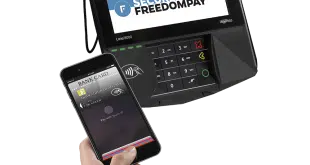A 2-year-old startup that allows consumers to use prepaid cards augmented with funds from participating merchants is expected to launch its product commercially next week following a nearly nine-month pilot in the Bay area.
Emeryville, Calif.-based Marqeta Inc., which has already signed up about 250 merchants, is banking on the idea that consumers will respond better to real-dollar rewards than to other types of value and that merchants will line up to lock in customers’ spending in advance. “We like the idea that you just get extra money,” Jason Gardner, the company’s founder and chief executive, tells Digital Transaction News. “We’re dealing with real money, not points. Consumers are confused about what their points are worth.”
While he will not disclose how many consumers have signed up so far, Gardner says Marqeta is recruiting new merchants “every week” to accept the mag-striped Marqeta card, which works in conventional point-of-sale devices linked to the Discover network. Those that have come aboard fall into a wide range of categories, including restaurants, groceries, doctors’ offices, hair salons, and auto-repair shops. Perhaps the startup’s most prominent merchant so far is online florist 1-800flowers.com.
Gardner, who says he took inspiration from Starbucks Corp.’s highly successful closed-loop prepaid card, says he wanted to expand the concept to a wide network of merchants. He started working on the idea shortly after leaving MoneyGram International Inc., which in 2007 had acquired his previous startup, a company called PropertyBridge Inc. that specialized in processing rent payments for landlords.
With Marqeta, retailers offer to match a percentage of what consumers load onto the card for spending at that store. A grocer, for example, might add $7 onto a customer’s $100 load. Other merchants with bigger margins typically augment loads by as much as 25%. While merchants can extend limited-time offers, they are required to post at least one so-called always-on offer. 1800flowers.com, for example, features a 25% always-on offer.
The idea, says Gardner, is that the merchant can count on committed funds ahead of the sale and is presumably locking in incremental business. “It’s all pay for performance,” he says. “The merchant pays us a commission for bringing him a customer who has paid in advance.” Commissions, he says, range from 5% to 10% of the load value. In addition, merchants pay discount fees based on signature-debit interchange to their acquirer each time the card is used at their store.
Consumers sign up for the card, choose the merchants they want to use it with, and load value on the Marqeta Web site, though the company also offers a mobile app. For now, consumers must use a major-brand credit or debit card to load funds, though Gardner says the service plans to add a capability to support cash and transfers from bank accounts through the automated clearing house network. Though transactions are routed by Discover, Marqeta handles authorization and settlement.
Other plans call for Marqeta cards for employees to support both discount programs and payroll. Gardner says the company in a few weeks will announce several “larger partners” for programs like these, including a “large restaurant chain” that is looking to streamline employee discounts.
Mobile transactions, however, are not on the immediate horizon. Since Marqeta works on the Discover network, its card will work in the newly overhauled Google Wallet. But Gardner and chief revenue officer Omri Dahan argue too much POS investment remains to be made to make mobile transactions practical for merchants. “Mobile payments are not a value proposition,” says Dahan. “It’s an interesting technology.”
While merchants may find appeal in the notion of prepaid sales, observers say Marqeta’s value proposition to them will rise or fall depending on whether the startup can deliver incremental business—purchases that the cardholder would not otherwise have made at the store.
With commissions, augmented loads, and discount fees on transactions to reckon with, merchants may also need the card to induce consumers to spend beyond what’s loaded on it, argues Ben Jackson, senior analyst in the prepaid advisory service at Maynard, Mass.-based Mercator Advisory Group. “A guaranteed future sale is great as long as it produces a margin,” he notes.
So far, consumers seem willing to oblige. Marqeta, which charges the card designated by the user for any spending beyond the load value, notes that overspend across its network has averaged 20.3%.





